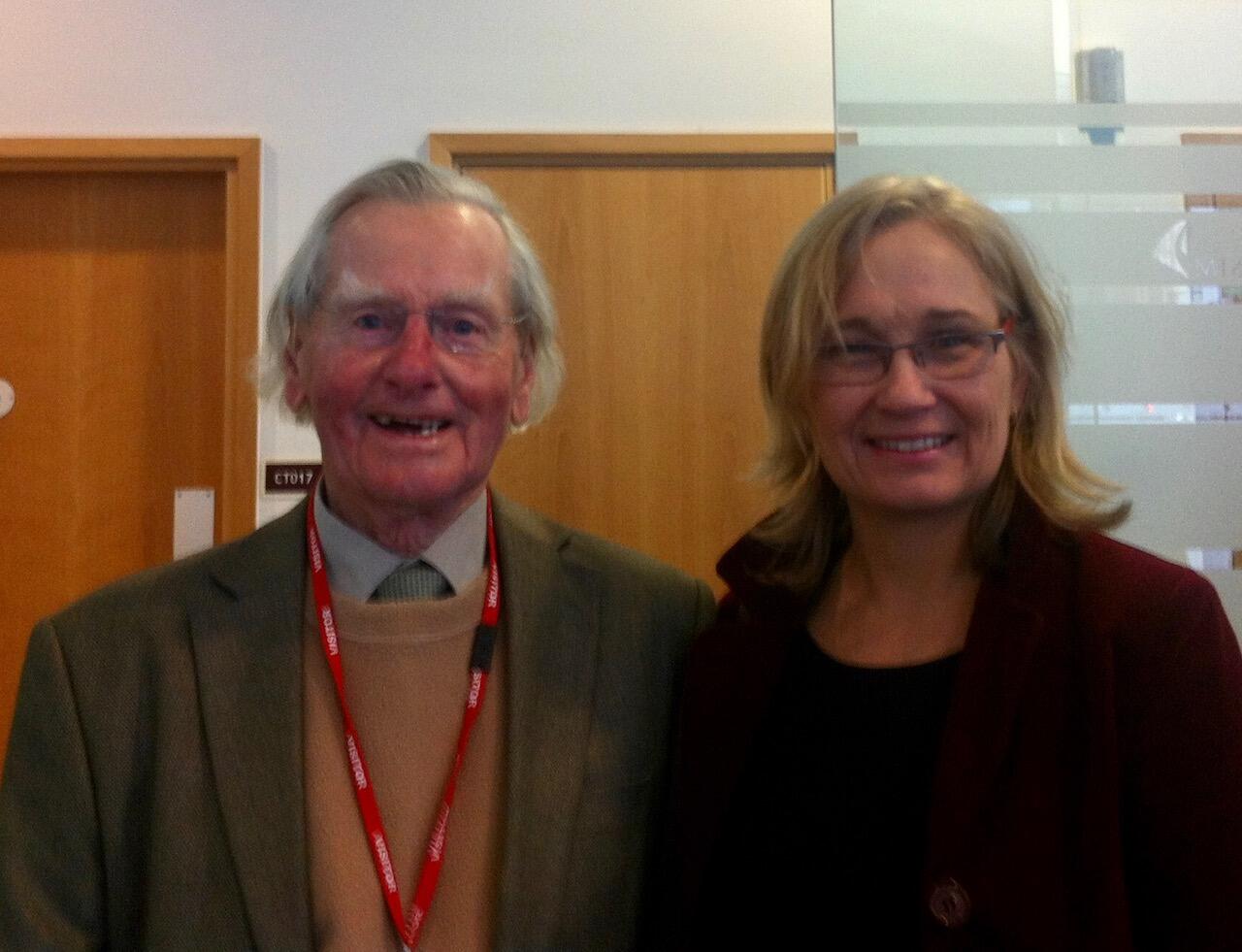
LSTM recognises the 100th birthday of one of its most loyal and committed staff members, Dr Bill Crewe, who celebrates his centenary today.
Bill Crewe joined LSTM in 1949 as a student of Professors Rupert Gordon and William Kershaw and was part of the highly successful team who worked in Cameroon during the 1950s unravelling the epidemiology of ‘Calabar swelling’ caused by Loa loa – also known as ‘tropical eye worm’ and the ecology of its vector Tabanid, Chrysops.
Dr Crewe’s thesis was an epic study and the value of his work has been enhanced recently given the need to better understand the distribution of Chrysops and the transmission of Loa loa in relation to the risks of severe adverse events when ivermectin is used for control of onchocerciasis and filariasis.
LSTM’s Dr Louise Kelly-Hope said in response to Dr Crewe’s centenary: “The excellent work by Bill Crewe on the bionomics of Chrysops vectors in the 1950s provided an important springboard for my current research on Loa loa, which is focussed on defining the spatial distribution and environmental drivers of transmission hotspots and risk of severe adverse events associated with ivermectin for onchocerciasis and lymphatic filariasis elimination. I had the privilege to meet Bill in 2013 at LSTM when he joined a Loa loa scientific meeting and provided key insights into his field work. I hope he will be pleased to know that his work has helped to further work on Loa loa at LSTM with successful grant applications, many publications and conference presentations and a line-up of students eager to learn more and move research forward on this important neglected tropical disease.”
Following his time in Cameroon Dr Crewe became a lecturer at LSTM and was the backbone of the recently renamed Department of Tropical Disease Biology teaching for decades, in particular on LSTM’s flagship course the Diploma in Tropical Medicine & Hygiene (DTMH), and through initiating the MSc in the 1960s. He served under three Professors: Dr Kershaw, Dr Peters and Dr Nelson who, through Dr Crewe’s dedication, knew the teaching responsibilities of the Department were in exceptional hands.
Bill Crewe updated the famous Blacklock and Southwell textbook used for generations of DTMH students. He never failed to be present in the Dagnall laboratory for practical classes with his fellow pipe smoker and close friend, Jeff Friend, at a time when most staff smoked. Dr Crewe’s microscopic diagnostic acumen was unrivalled.
He and his wife Sheila were regular hosts for MSc students in Liverpool where they lived for many years before they moved to Lincoln for family reasons. Sheila Crewe herself joined LSTM as a research assistant to Michael Clarkson in 1963, took the MSc course in1965 and completed her PhD in 1975 on bird malaria.
It is fitting that LSTM recognises Dr Crewe’s 100th birthday and wishes him well given his unstinting loyalty, teaching excellence and exemplary citizenship to LSTM over some 40 years and his scientific contributions to the epidemiology of Loa loa.
The inaugural World Neglected Tropical Diseases Day will be marked on January 30 this year as it is the anniversary of the London Declaration, which did much to bring together policy makers across countries and to encourage investment to commit to control and elimination of NTDs.